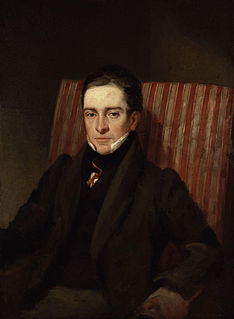A Quote by Marcel Proust
Our worst fears, like our greatest hopes, are not outside our powers, and we can come in the end to triumph over the former and to achieve the latter.
Related Quotes
We can trace back our existence almost to a point. Former time presents us with trains of thoughts gradually diminishing to nothing. But our ideas of futurity are perpetually expanding. Our desires and our hopes, even when modified by our fears, seem to grasp at immensity. This alone would be sufficient to prove the progressiveness of our nature, and that this little earth is but a point from which we start toward a perfection of being.
The progress of science has always been the result of a close interplay between our concepts of the universe and our observations on nature. The former can only evolve out of the latter and yet the latter is also conditioned greatly by the former. Thus in our exploration of nature, the interplay between our concepts and our observations may sometimes lead to totally unexpected aspects among already familiar phenomena.
Fear keeps us rooted in the past. Fear of the unknown, fear of abandonment, fear of rejection, fear of not having enough, fear of not being enough, fear of the future-all these fears and more keep us trapped, repeating the same old patterns and making the same choices over and over again. Fear prevents us from moving outside the comfort-or even the familiar discomfort-of what we know. It's nearly impossible to achieve our highest vision for our lives as long as we are being guided by our fears.
Typically, the hero of the fairy tale achieves a domestic, microcosmic triumph, and the hero of myth a world-historica l, macrocosmic triumph. Whereas the former-the youngest or despised child who becomes the master of extraordinary powers-prevails over his personal oppressors, the latter brings back from his adventure the means for the regeneration of his society as a whole.






































